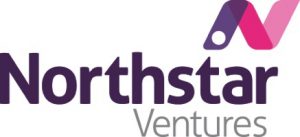Open innovation programme launched to help tackle COVID-19 issues and fast track solutions.
Businesses invited to detail what issues they are facing due to COVID-19 disruption.
A new programme has been launched by the North East Local Enterprise Partnership, (North East LEP), that will seek to understand the common issues facing our region’s businesses due to COVID-19 and help to provide solutions to minimise the ongoing disruption.
Alan Welby, Innovation Director at the North East LEP, said: “Challenge North East is an open innovation programme to help solve some of our region’s most pressing practical problems when faced with COVID-19. And that’s what we’re good at in this region – coming together to solve problems – to resolve our challenges – and make things happen.
“We want to identify areas of shared concern, to invite solutions from the region’s innovators and then help fund the development of these problem-solving ideas.
“Right now, we are asking organisations to tell us what their issues are so we can see where there is common ground across sectors. We are keen to explore solutions to the challenges caused by our current inability to work and socialise in close proximity, disruptions caused in supply chains, new needs that have emerged, such as how we address the risk of digital services leaving behind those of us without digital skills. We want to hear from local industry about what their areas of focus are and then work together to quickly develop solutions that work.”
Challenge North East will be delivered by the Innovation SuperNetwork and the Digital Catapult North East Tees Valley.
Estelle Blanks, Executive Director of the Innovation SuperNetwork, said: “COVID-19 has disrupted so many aspects of our work and home lives and we need to work together as a region to support each other as we rebuild. Our goal through this programme is to work with local industry and communities to identify where innovative solutions will have the biggest impact and to provide the framework and funding to make these solutions happen.
“The Innovation SuperNetwork team who are delivering this programme are passionate about delivering real value for the region and we are excited to work with businesses and communities to ensure we are focusing our attention in the right areas.”
Challenge North East will be rolled out over three phases, starting by bringing together large organisations and representatives of communities that have been impacted by COVID-19.
Through discovering the common themes faced by organisations and their stakeholders, the programme team can then launch a series of challenges for which solutions can be found that will work across multiple sectors and environments.
In the coming weeks, Virtual Round Tables will be held with participants to identify key challenges that need support over the next six to twelve months.
David Dunn of the Digital Catapult North East Tees Valley, said: “To get this programme off the ground, we will be hosting a series of Round Tables with representatives of industry and communities to identify the most common shared challenges and to agree how to tackle finding solutions for them.”
The first Round Table event, was held on 22 October and looked at the impact of COVID-19 on in-person events – for example theatre shows, play groups, and concerts along with public transport.
Organisations from other sectors facing ongoing Covid-related challenges are invited to share details with the Challenge North East team by emailing [email protected] and giving an outline of the challenge they are facing. Organisations that do so will be invited to participate in future Round Tables in early November.
Once the cross-cutting challenges have been identified, the programme will launch a call to the region’s innovators to develop solutions in collaboration with local leaders from industry, government, the third sector and research.
Alan Welby said: “At this stage, we are appealing to those organisations who are really hurting – tell us what the challenges are that you are facing. We’re not calling for the solutions just yet. To get this right, we need to understand the common issues businesses are dealing with and then we will look to see which ones we believe can be resolved through a fast-paced process of open innovation.
“We hope that by December we will be starting to work with companies who can help create solutions to develop and validate their ideas with potential clients.”
Successful solution providers will be awarded development funding to implement the solution and have it rolled out with challenge partners.
To find out more about Challenge North East, visit www.challengenortheast.co.uk
Challenge North East has received funding from the government’s Local Growth Fund. The Local Growth Fund is supporting capital investments to promote innovation, economic and skills infrastructure and sustainable transport as part of the North East Growth Deal.









